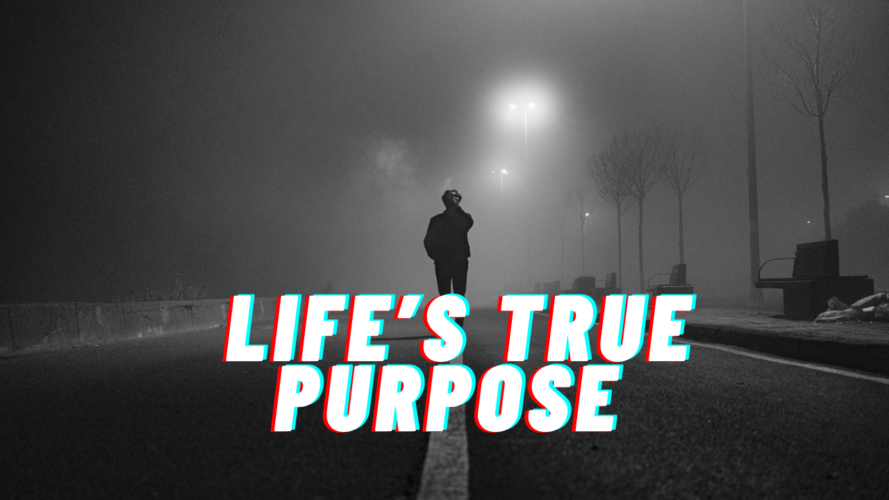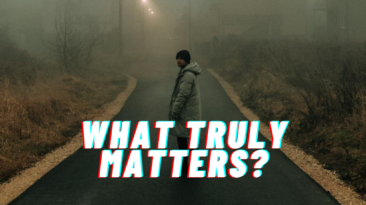Have you ever felt like you’re just going through the motions — working, surviving, but not really living? We chase success, money, and comfort, yet something still feels empty. Why does it feel like no matter how much we achieve, something is still missing?
I was listening to 12 Rules for Life by Jordan Peterson when I came across a chapter that made me stop and reflect. It was about pursuing meaning rather than what is expedient. Peterson narrated a story about prisoners in concentration camps during World War II.
The guards would force some prisoners to carry sacks of salt from one side of the prison to the other, only to make them return it to its original place and repeat the process for most of the day.
This story, though based on real events, also speaks to the nature of work and what it truly means. It reminded me of the pointlessness of labour when stripped of meaning — a reality that materialism and corporatism push in modern society. It’s similar to the Greek myth of Sisyphus, who was condemned to roll a massive boulder up a mountain, only for it to roll back down every time he reached the top. He was forced to repeat this task for eternity.
The harshness of life is not something we often talk about. But those who endure war and trauma experience its full weight. They see life for what it is.
Meaning Makes the Difference
The only real difference between the prisoners carrying salt and many modern workers is that the prisoners weren’t financially compensated. But is money enough? Many people today feel like they are trapped in a meaningless cycle, caught within societal and capitalistic structures that demand endless labour.
So, what separates those prisoners from people working physically demanding jobs? It’s meaning. Those who find purpose in their work — whether through family, service, or personal growth — experience their struggles differently. Even when financial gain is involved, it is often tied to something greater: supporting loved ones, achieving personal goals, or contributing to something meaningful.
This reminds me of Man’s Search for Meaning by Viktor Frankl. If you haven’t read it, I highly recommend it. In his book, Frankl explains that prisoners who found meaning — whether through faith, hope, or love — were able to endure the horrors of the concentration camps. Those who lacked meaning, who had nothing to hold onto, gave up and withered away.
For some, meaning came from the hope of seeing their families again. For others, it was their belief in God and the understanding that their suffering had a larger purpose.
The Illusion of the World
At the end of the day, life is not just about making money — it’s about meaning and purpose, which I would argue are even more important.
There is a saying within the Islamic tradition that serves as a constant reminder of the nature of this world:
“And this worldly life is nothing but diversion and amusement. And indeed, the home of the Hereafter — that is the [eternal] life, if only they knew.”
I think this relates to the topic perfectly. Even if one doesn’t believe in the afterlife, the mundanity of life is undeniable. Many seek distractions through pleasure, entertainment, and indulgence. But eventually, their own inner emptiness catches up to them, and they are forced to confront the truth — that life without meaning is hollow.
The pursuit of meaning is not just an option; it is a necessity. Without it, we are just prisoners moving salt from one side to the other, waiting for time to run out.
Books I Recommend
If you enjoyed this content, here are some books I highly recommend for deeper insights. As an Amazon Associate, I earn from qualifying purchases. This comes at no extra cost to you and helps support my work in providing quality recommendations. Links lead to the audiobook versions, but other formats are available on the same page.

















Add comment